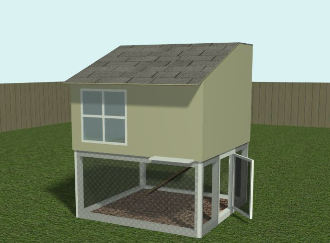The worlds turn in focus from consumption to production has caused a renewed focus in sustainable living. Cities around the world are finding new ways to use renewable energy and decrease dependency on fossil fuels. And they are trying to stimulate the people to act for themselves and join the movement toward a Green planet.
Austin is doing its part. With its new slogan Grow Local, SFC Sustainable Food Center in Austin is educating and encouraging Texans to turn to their own backyards for food and resources. Through gardening and composting, each household can become more independently sustainable and less dependent upon outside help.
According to the SFC, Texas ranks third (to the bottom) in food insecurity. That means that over 15% of households in Texas cant produce one thing for themselves from the ground; but instead, they go the grocer or a restaurant for everything. They cannot feed themselves.
But it doesnt have to be this way. Though Texas soil provides challenges for growing some products, other products grow quite well, enabling a well-rounded, diverse garden. SFC gives these tips for starting and maintaining a garden.
Greatest Garden Ever
1. Preparing the Time Spring in Texas is not the only time to plant. Fall, too, works just as well by providing an appropriate, mild climate. So February-March and September-October are the two prime planting times; however, you can plant almost year round in Texas. Best advice for starting out: start small. You want to have something that you can manage without feeling overwhelmed. You can always expand your garden when you are ready.
2. Preparing the Ground Because the dirt is so hard, make sure that you water the ground before beginning to prepare the garden bed.
It is much easier to work with moist dirt than it is to dig in the clay ground. Make sure when loosening the soil to remove weeds and grass roots, as well as build pathways and trenches for water. To ensure that weeds dont grown on the pathways, lay down newspaper or cardboard first and then mulch or leaves.
3. Planting For best results, follow the instructions on the seed packets. They will tell you about spacing, sunlight and amount of water needed. Make sure and keep the soil moist during germination so that the maximum number of seeds will sprout. Then, when plants emerge, thin your garden out by pulling up the ones that are too close together.
Sharing the Wealth
If you dont have the space for a garden, then SFC has a list of all the community gardens around town that you can join. And if you are growing in your own backyard, then you can join a co-op to share what you have and get what you dont.
Becoming sustainable is not as hard as you might think. With organizations like SFC providing information to locals, anyone can Go Green right from home…even right from their very backyard.
Copyright 2009 – 2010 theLEED.com and Green Efficient. Article may be reproduced, unchanged, as long as it retains author information and linking.
Find More Chicken Farming Articles



Leave a Reply